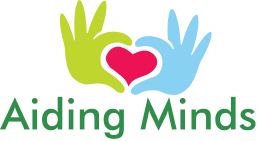What is Counselling
Counselling provides a safe, impartial and confidential space in which to explore your feelings. Talking to a professional in a confidential setting, safe in the knowledge that what you say will be respectfully listened to, can sometimes help us to understand what is making us feel a certain way.
All of us at some point in our lives will experience times when we feel that we are overwhelmed or cannot cope. These feelings often impact on other areas of our life. These feelings may affect our academic studies, our relationship with others, or our personal life, to the extent that we feel unable to live in a successful or satisfactory way. This may be the time to seek out a counsellor.
Feelings such as anger, grief, anxiety and loneliness can be distressing and cause anguish, especially if they have been with us for a long period of time. Counselling can help you to explore and reflect upon these feelings. It can help you to understand what is at the root of the concern, and can help you to work towards resolving these difficulties.
What Happens in a Counselling Session
Counselling is not advice and may feel different from other types of help. It is a process where the counsellor can help you to explore and understand difficulties, and then help you to develop your own resources to cope with them. The counsellor will treat you with respect and treat your concerns with sensitivity. You will be carefully listened to, and at the end of counselling there is usually a better understanding of how to cope with existing and future difficulties.
How long does it take?
Each counselling session lasts for 50 minutes, however some people find this is a little overwhelming and you do not have to stay the full 50 minutes if you would prefer to have a shorter session. The first meeting with the Counsellor is an assessment session and provides you with an opportunity to discuss issues you wish to explore and what you hope to achieve from the Counselling, this session may not be with the counsellor with whom you are allocated for your next session, once you have a Counsellor allocated this person will be with you for your allocated sessions. Sometimes one or two sessions will be enough for you; sometimes the Counsellor will suggest a limited number of sessions, we generally work in blocks of up to six sessions which occur weekly at the sane time and on the same day – for some people less frequent meetings can be arranged and if you need to take a break this is fine too.
Is the counselling confidential?
Confidentiality is paramount within counselling, the Counselling Service adheres to the British Association for Counselling and Psychotherapy (BACP) Ethical Framework.
Your personal details and sessional notes are stored on computer for the sole use of service staff. All records are strictly confidential and are kept securely. If you have queries about any aspect of confidentiality and/or record keeping, please discuss this with your counsellor or therapist. Aiding Minds Service adheres to the code of ethics set forth by the British Association for Counselling and Psychotherapy (www.bacp.co.uk).
No information regarding client’s contact with the Service will be released to family, other medical staff or anyone else, without the clients prior consent, unless exceptional circumstances prevail, such as a client being at risk of harm, or at risk of harming another person.
